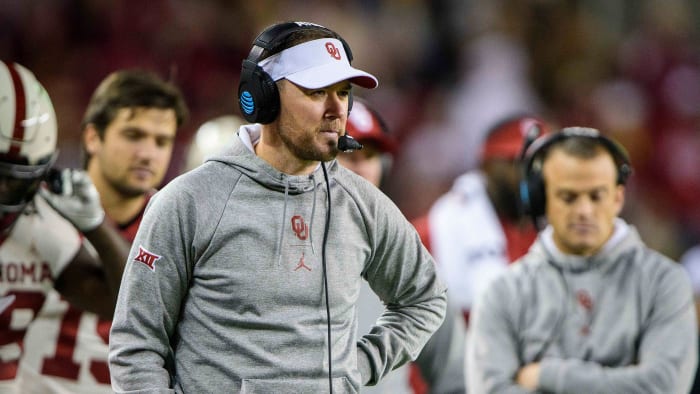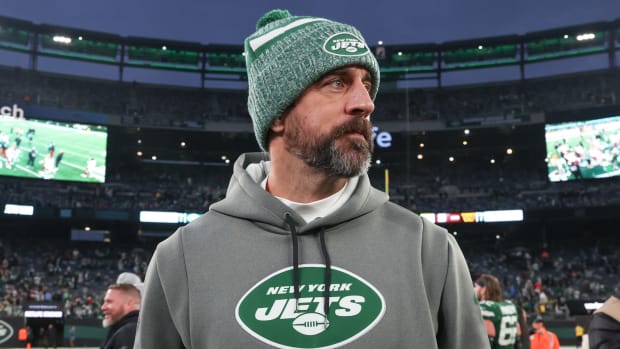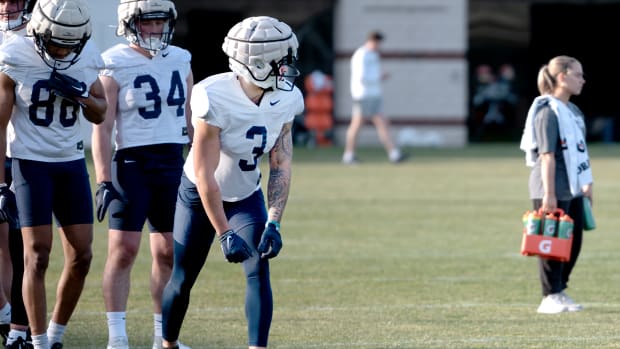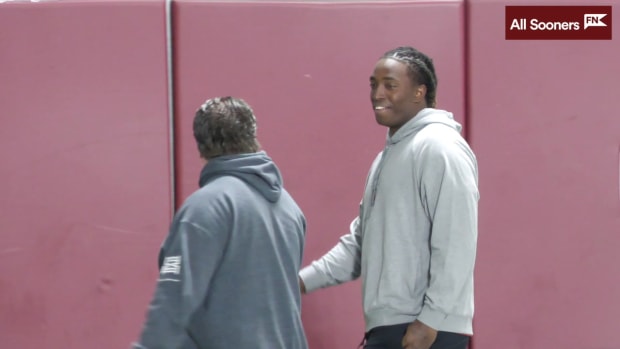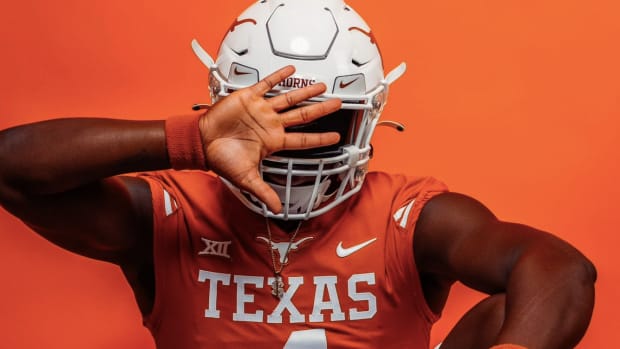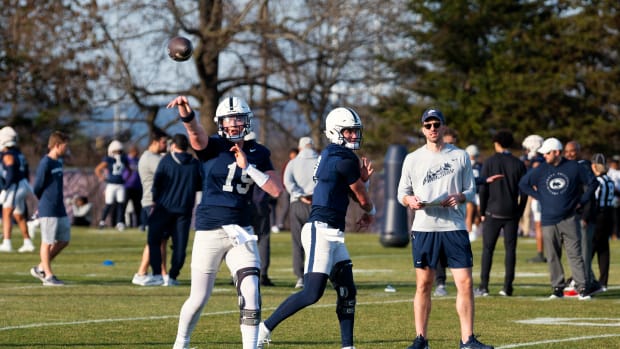Forde-Yard Dash: Updates on COVID-19 Team Cases Should Not Be Kept Private
Forty names, games, teams and minutiae making news in college football, where moving trucks are standing by at Jay Hopson’s house in Hattiesburg:
MORE DASH: Bring on the Big Boys | Big Ten Noise
THIRD QUARTER: THIS IS NO TIME FOR SECRECY
The enduring mystery of American higher education is how much universities don’t want the public to know about how they do business. At many (but by no means all) public universities, they blockade open-records requests with creative obstinance. Privacy laws are expanded beyond their intended scope. “Foundations” are set up to move around money and store documents in secrecy. Outside legal counsel and search firms are hired (at great cost) to serve as private middlemen.
Athletic departments are very much down with the obfuscation plan, and no sport is more in love with secrecy than football. Coaches refuse to even talk on the field without covering their mouths. Injuries are more closely guarded than enriched plutonium. Practices are closed, with screens and tarps keeping the proceedings shrouded in mystery.
And now, alas, COVID-19 updates have been dragged inside the cone of silence as well.
Oklahoma coach Lincoln Riley (21), who had been quite open throughout the summer regarding his team’s testing, has now shut that down. COVID results will be treated “just like an injury,” he said Tuesday. Which is to say, hidden. "I know we've been probably the most transparent school in the country up until then,” Riley said, according to The Oklahoman, “but you don't want to give your team a competitive disadvantage so we're not going to do that."
This is a coach doing what coaches are inclined to do, and it doesn’t fit with the times. Positive tests for a highly contagious disease are not sprained ankles or separated shoulders or concussions. There absolutely is a public right to know how well or poorly a university—and its athletic teams—are containing COVID-19. The risk of transmission to others demands public accountability, and an element of sportsmanship is involved in alerting the opponent.
(An Oklahoma spokesman told The Dash Tuesday evening: "We will report [COVID data] to health agencies and the conference. We will not share information with opponents as to positive test numbers. Both teams attest prior to the game that they have satisfied the conference policies related to COVID.")
Oklahoma is not the only team being coy with its testing information, just the latest. ESPN.com reported earlier this month that nearly half the Power 5 programs are not sharing data on how many positive tests they’re experiencing. Among those who are divulging, data often is incomplete or uselessly vague.
Public health information shouldn’t be controlled by football coaches who are worried about giving an opponent information—or jeopardizing the ability to compete. For instance: in recent weeks, the default answer from athletic programs about positive tests is that the virus is being transmitted via social interactions, not in the course of practice or competition. Can we trust that assessment? Especially when there is strong disincentive to admit any element of spread that came from within a team?
If ever there is a time for maximum transparency in college sports, this is it. Covering up injuries is hard to justify; covering up COVID-19 case numbers is worse.
THE INVERSE CORRELATION BETWEEN ACADEMIC RANK AND FOOTBALL
With the news that Rice (22) is delaying the start of practice and postponing its games scheduled for Oct. 3 (Marshall) and 10 (UAB), it further thins the herd of elite academic institutions that are currently playing football.
Right now, only three of the U.S. News & World Report’s Top 25 national universities are planning to play this month: Duke (23), which is tied for 10th in the U.S. News rankings, and Notre Dame and Vanderbilt (24), which are tied for 15th. Top 25 FBS schools not playing: Stanford, Northwestern, Rice, UCLA, California, USC, Michigan.
WHAT WE KNOW SO FAR
Fourteen FBS teams have played so far, and The Dash has been curious to find out how different (at all) the play has been compared to years with a more normal preseason. The sample size is far too small to draw any definitive conclusions, but here is some of the data:
Concerns from coaches about a lack of August hitting (25) leading to poor defensive play appear justified after one week. FBS teams averaged 34.1 points per game, far higher than the highest season average on record (30.0 in 2016). Total offense was 412.36 yards per team, which would be the second-most ever, behind 2016 (417.1).
Along those lines: punting was extremely rare (26). Teams averaged just 2.5 punts, far less than the record low of 4.6 per team in 2008. With Mark Dantonio out of the game and Kirk Ferentz’s team sitting out the fall, that number could stay record-settingly low.
Less expected: the running game is up (27) and the passing game is down (28). Teams averaged 202.7 rushing yards (most since 1975) and 43.4 attempts (most since 1988). Passing yards checked in at 209.6 (lowest since 2008) and 28.5 attempts (lowest since 1994). A likely explanation for that: two of the 14 teams that have played thus far are service academies, which run the ball almost exclusively.
Despite the lack of fans, bands and other hoopla, home field advantage stayed strong (29). Home teams went 6–3, a .667 winning percentage that would break the record of 65.3 set last season. (This is subject to a market correction once teams begin league play and are matched up against programs of similar stature.)
The games also were not even close to being close (30). Just one (SMU-Texas State) was decided by one possession, and that was only the case when the Bobcats kicked a field goal with 45 seconds left to get within seven. Average margin of victory was 16.4 points.
With several ACC league games on tap this week, hope for improved competitiveness.
MORE DASH: Bring on the Big Boys | Big Ten Noise
